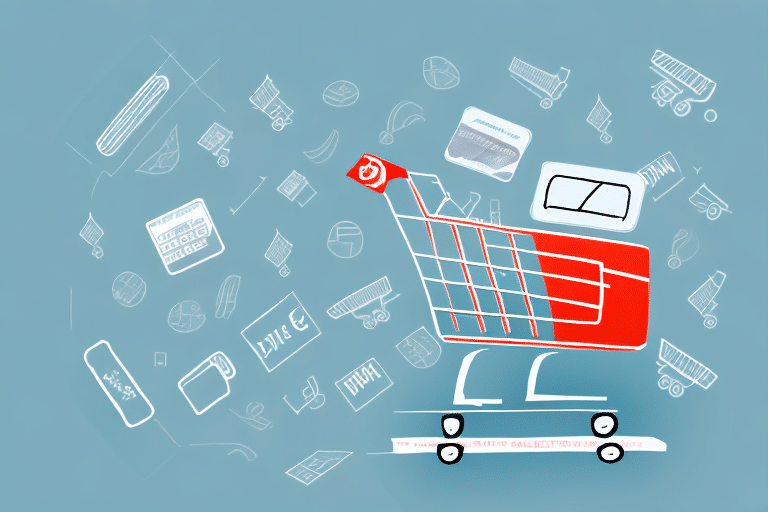Top Considerations for Choosing the Perfect Payment Gateway for Your Online Store
If you are an online merchant, one of the most important decisions you will make is choosing the perfect payment gateway for your store. Selecting the right gateway to handle your transactions is crucial, as making the wrong choice can lead to lost sales, frustrated customers, and even fraud. In this article, we will explore some of the key considerations to keep in mind when choosing a payment gateway.
Choosing the Right Payment Gateway: Factors to Consider
The first thing to consider when selecting a payment gateway is the types of payments you want to accept. Do you want to support credit and debit cards, or do you also want to accept alternative payment methods like e-wallets or cryptocurrencies? It's important to choose a gateway that supports the payment methods your customers prefer, as this can greatly impact your conversion rates.
Another important consideration is the fees associated with the payment gateway. Review the pricing structure for each gateway you are considering, including any setup fees, transaction fees, and chargeback fees. Additionally, account for any monthly or annual subscriptions that may be required, as well as any additional features included in the pricing.
Security is also a crucial factor when choosing a payment gateway. Ensure that your customers' sensitive information, such as credit card numbers, is protected from fraud and theft. Look for gateways that offer advanced security features, such as tokenization and encryption, to keep your customers' data safe. Additionally, make sure that the gateway is compliant with industry standards, such as PCI DSS, to further ensure the security of your transactions.
Security Features to Look for in a Payment Gateway
Security is an essential aspect of any payment gateway. Choose a gateway that offers the latest security technologies to keep your transactions and your customers' data safe from fraud. Look for gateways that offer advanced anti-fraud measures, like tokenization and encryption, as well as support for 3D Secure authentication.
It's also important to select a gateway that is compliant with the Payment Card Industry Data Security Standard (PCI DSS). This set of security standards ensures that all businesses accepting credit card payments maintain a secure environment to process transactions. Failure to comply with this standard can lead to hefty fines and damage to your business's reputation.
In addition to the above-mentioned security features, consider the level of customer support provided by the payment gateway. A good payment gateway should offer 24/7 customer support to help you resolve any issues that may arise during transactions. This can include technical support, fraud prevention assistance, and chargeback management. Choose a payment gateway that provides reliable and responsive customer support to ensure a smooth payment process for your customers.
How to Evaluate Transaction Time in a Payment Gateway
Transaction time, or the time it takes for a payment to be processed, is a crucial factor when selecting your payment gateway. Longer transaction times can lead to lost sales and decreased customer satisfaction, so it's important to choose a gateway that offers fast, reliable transaction processing. Look for gateways that offer real-time processing and dedicated support teams to ensure speedy and hassle-free transactions for your customers.
Consider the location of your customers when evaluating transaction time. If you have customers in different parts of the world, choose a payment gateway that has servers located in multiple regions to ensure faster processing times. Additionally, some payment gateways offer features like tokenization and pre-authorization, which can help speed up the transaction process by reducing the amount of data that needs to be processed during each transaction.
Customizable Interface: Why It Matters
Aesthetics and customization are important considerations when choosing a payment gateway. Select one that offers a customizable interface that can be branded to align with your site's look and feel. This can help build trust with your customers and reinforce your brand identity. Additionally, choose a gateway with a simple and intuitive interface that is easy for your customers to use.
Customizing the payment process to your specific business needs is another advantage. For example, you may want to include additional fields for customers to fill out during checkout or offer multiple payment options. A customizable interface allows you to easily make these changes, ensuring that the payment process is streamlined and efficient.
Reducing cart abandonment rates is also facilitated by a customizable interface. If customers encounter a payment page that looks unfamiliar or untrustworthy, they may hesitate to complete their purchase. By customizing the interface to match your brand and website, you can create a seamless and trustworthy payment experience that encourages customers to complete their transactions.
Going Global: Payment Gateway Support for International Transactions
If you plan to expand your business into international markets, you'll need a payment gateway that supports transactions in multiple currencies and languages. Look for a gateway that offers support for the currencies you'll be doing business in, as well as options for local payment methods popular in the markets you'll be serving. Additionally, choose a gateway that offers robust reporting and analytics tools to help you manage your global transactions effectively.
Not all payment gateways are created equal when it comes to international transactions. Some gateways may have restrictions on certain countries or currencies, while others may have higher fees for international transactions. Conduct thorough research to choose a payment gateway that fits the specific needs of your business and target markets. Consider partnering with a local payment processor or financial institution in the countries you'll be doing business in to ensure a smooth and seamless payment experience for your customers.
Understanding AVS Protocol and Its Role in Payment Processing
AVS, or Address Verification Service, is a standard security measure used to help prevent fraudulent transactions. When a customer enters their billing address during the checkout process, the AVS system compares this address to the information on file with the credit card company to ensure a match. This verification helps confirm that the customer is the actual cardholder and reduces the risk of fraud. Choose a payment gateway that offers support for the AVS protocol and other advanced fraud prevention measures to protect your business against chargebacks and other types of fraud.
In addition to AVS, other security measures can further protect your business from fraud. One such measure is CVV, or Card Verification Value, which requires customers to enter the three-digit code on the back of their credit card. This ensures that the customer has the physical card in their possession and is not using stolen card information. Another measure is 3D Secure, which adds an additional layer of authentication by requiring customers to enter a password or code sent to their phone or email. By implementing multiple security measures, you can ensure that your business is protected against fraudulent transactions.
Conclusion
Choosing the perfect payment gateway for your online store can be a challenging task, but by considering these key factors and selecting a reputable payment gateway provider, you can ensure that your customers' transactions are safe, fast, and hassle-free. Take the time to evaluate your business's specific needs and review the available options to find the perfect payment gateway for your online store.
While security is a top priority when selecting a payment gateway, it's not the only factor to consider. You'll also want to evaluate the fees associated with each provider and the level of customer support they offer. Some payment gateways may charge a higher transaction fee but provide more comprehensive support and resources to help you manage your online payments effectively.
As your business grows and evolves, your payment gateway needs may change as well. Regularly review your payment gateway provider and consider whether there are any new options or features that could better serve your business and customers.






















